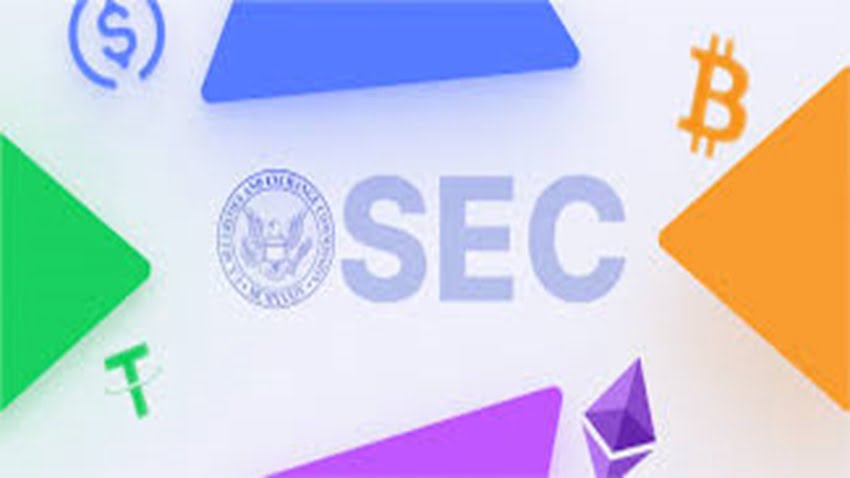Introduction
Cryptocurrencies have revolutionized the financial landscape, introducing a new era of digital assets and decentralized finance. However, as the popularity and use of cryptocurrencies have soared, so have concerns about their regulation. Enter the Securities and Exchange Commission (SEC), a pivotal body in financial regulation. Understanding the SEC’s role and its recent actions is crucial for anyone involved in the cryptocurrency market. This article delves into the impact of recent SEC regulations on cryptocurrencies, providing a comprehensive overview of the changes and their implications.
The Role of the SEC in Financial Markets
The SEC, established in 1934 in response to the Great Depression, aims to protect investors, maintain fair and efficient markets, and facilitate capital formation. Its responsibilities include enforcing federal securities laws, regulating the securities industry, and overseeing securities exchanges. Over the decades, the SEC has shaped financial markets, fostering transparency and integrity. Traditionally, its influence was confined to conventional financial instruments like stocks and bonds. However, the rise of digital assets has broadened its regulatory scope.
Cryptocurrency: A Brief Overview
Cryptocurrencies, digital or virtual currencies secured by cryptography, emerged with Bitcoin in 2009. Unlike traditional currencies, cryptocurrencies operate on decentralized networks based on blockchain technology. This decentralization ensures transparency and security but also poses regulatory challenges. The market has seen explosive growth, with thousands of cryptocurrencies and a market capitalization exceeding $1 trillion at its peak. Major players include Bitcoin, Ethereum, and Ripple, each serving different purposes within the ecosystem.
Why the SEC is Interested in Cryptocurrencies
The SEC’s interest in cryptocurrencies stems from several factors. Firstly, the rapid rise of digital assets has caught the attention of regulators worldwide. Cryptocurrencies present unique challenges and risks, including significant price volatility, potential for fraud, and lack of investor protections. The decentralized nature of these assets can facilitate market manipulation and illicit activities. The SEC’s mandate to protect investors and ensure market integrity naturally extends to this burgeoning market.
Recent SEC Regulations on Cryptocurrencies
In recent years, the SEC has intensified its regulatory oversight of cryptocurrencies. Key regulatory actions include clarifying the classification of cryptocurrencies as securities, setting requirements for Initial Coin Offerings (ICOs), and establishing guidelines for cryptocurrency exchanges. These actions aim to bring transparency and accountability to the market. High-profile enforcement actions, such as those against Ripple Labs and various ICOs, highlight the SEC’s commitment to policing the crypto space.
Key SEC Regulatory Actions in Detail
The SEC’s classification of certain cryptocurrencies as securities is a cornerstone of its regulatory approach. Under the Howey Test, a cryptocurrency qualifies as a security if it involves an investment of money in a common enterprise with an expectation of profits primarily from the efforts of others. This classification subjects many cryptocurrencies and ICOs to federal securities laws. The SEC has also imposed strict disclosure requirements and anti-fraud provisions on ICOs, akin to traditional securities offerings. Cryptocurrency exchanges must register with the SEC and comply with various regulatory standards to operate legally in the U.S.
Implications for Cryptocurrency Companies
For cryptocurrency companies, compliance with SEC regulations presents significant challenges. Businesses must navigate complex legal requirements, often involving substantial legal and financial resources. Non-compliance can result in severe penalties, including fines and injunctions. Companies may need to adjust their business models, seek legal counsel, and implement robust compliance programs. These changes, while burdensome, can ultimately foster a more transparent and trustworthy market environment.
Impact on Investors
SEC regulations offer both benefits and risks for investors. On the positive side, increased regulatory oversight enhances transparency and investor protections, reducing the risk of fraud and market manipulation. However, these regulations can also limit investment opportunities and increase compliance costs, which may be passed on to investors. The regulatory landscape can influence investment strategies, with some investors favoring regulated assets for their perceived safety, while others may seek unregulated opportunities for higher returns.
Market Reactions and Trends
The introduction of SEC regulations has prompted varied reactions in the cryptocurrency market. Initially, regulatory announcements often lead to short-term market volatility, as evidenced by price fluctuations following major enforcement actions. However, in the long run, regulations can contribute to market stability by weeding out fraudulent schemes and establishing clearer rules of engagement. Case studies, such as the market’s response to the SEC’s actions against Ripple, illustrate the complex interplay between regulation and market dynamics.
International Perspective
The U.S. is not alone in regulating cryptocurrencies. Countries worldwide are grappling with how to address the unique challenges posed by digital assets. Regulatory approaches vary, from stringent frameworks in China to more lenient policies in Switzerland. International coordination efforts, such as those by the Financial Action Task Force (FATF), aim to harmonize regulations and combat cross-border financial crimes. These global efforts impact international cryptocurrency trading and the broader market.
Future of SEC Regulations on Cryptocurrencies
Looking ahead, the future of SEC regulations on cryptocurrencies is likely to involve ongoing adjustments and refinements. Potential future actions could address emerging trends and technologies, such as decentralized finance (DeFi) and non-fungible tokens (NFTs). Industry experts predict that regulatory clarity will continue to evolve, shaping the market in profound ways. Staying informed about regulatory developments will be crucial for market participants.
Criticism and Controversies
Despite the SEC’s efforts, its regulatory approach has faced criticism. Some argue that stringent regulations stifle innovation and hinder the growth of a nascent industry. Others contend that the SEC’s actions are necessary to protect investors and ensure market integrity. High-profile legal cases, such as the ongoing dispute between the SEC and Ripple Labs, underscore the contentious nature of crypto regulation. Industry lobbying efforts and public debates highlight the divergent views on this issue.
Case Study: Ripple Labs
The SEC’s case against Ripple Labs is a landmark event in crypto regulation. The SEC alleges that Ripple’s sale of XRP constituted an unregistered securities offering, a claim Ripple disputes. The outcome of this case could set a significant precedent for the classification and regulation of cryptocurrencies. Regardless of the verdict, the case has already had broad implications, influencing market perceptions and regulatory strategies.
Opportunities for Innovation
Despite regulatory challenges, there are opportunities for innovation within the crypto space. Regulatory sandboxes and innovation hubs provide environments where companies can test new products and services under regulatory supervision. These initiatives encourage experimentation while ensuring compliance. Additionally, new business models are emerging, with companies adapting to the regulatory landscape by developing compliant products and services. The industry’s resilience and creativity are driving ongoing innovation.
Conclusion
The SEC’s recent regulations have significantly impacted the cryptocurrency market, introducing new challenges and opportunities for businesses and investors alike. While compliance can be burdensome, the benefits of enhanced transparency and investor protection are substantial. The evolving regulatory landscape will continue to shape the future of cryptocurrencies, balancing the need for regulation with the potential for innovation. Staying informed and adaptable is key for all market participants.
FAQs
- What are the main reasons for SEC regulations on cryptocurrencies? The SEC regulates cryptocurrencies to protect investors, prevent fraud, and maintain market integrity. The rapid growth and unique risks of digital assets necessitate regulatory oversight.
- **How can investors ensure compliance with SEC regulations? Investors can ensure compliance by investing in SEC-registered assets, staying informed about regulatory changes, and seeking legal advice when necessary.
- What impact do SEC regulations have on the value of cryptocurrencies? SEC regulations can influence cryptocurrency values, often causing short-term volatility. However, in the long run, regulations can enhance market stability and investor confidence.
- Are all cryptocurrencies considered securities by the SEC? Not all cryptocurrencies are considered securities. The SEC uses the Howey Test to determine if a cryptocurrency qualifies as a security based on specific criteria.
- How can cryptocurrency companies navigate the regulatory landscape? Companies can navigate the regulatory landscape by staying informed about regulations, implementing robust compliance programs, and seeking legal counsel to ensure adherence to SEC rules.



